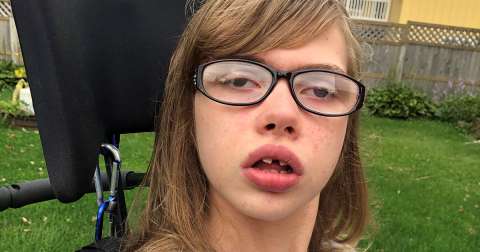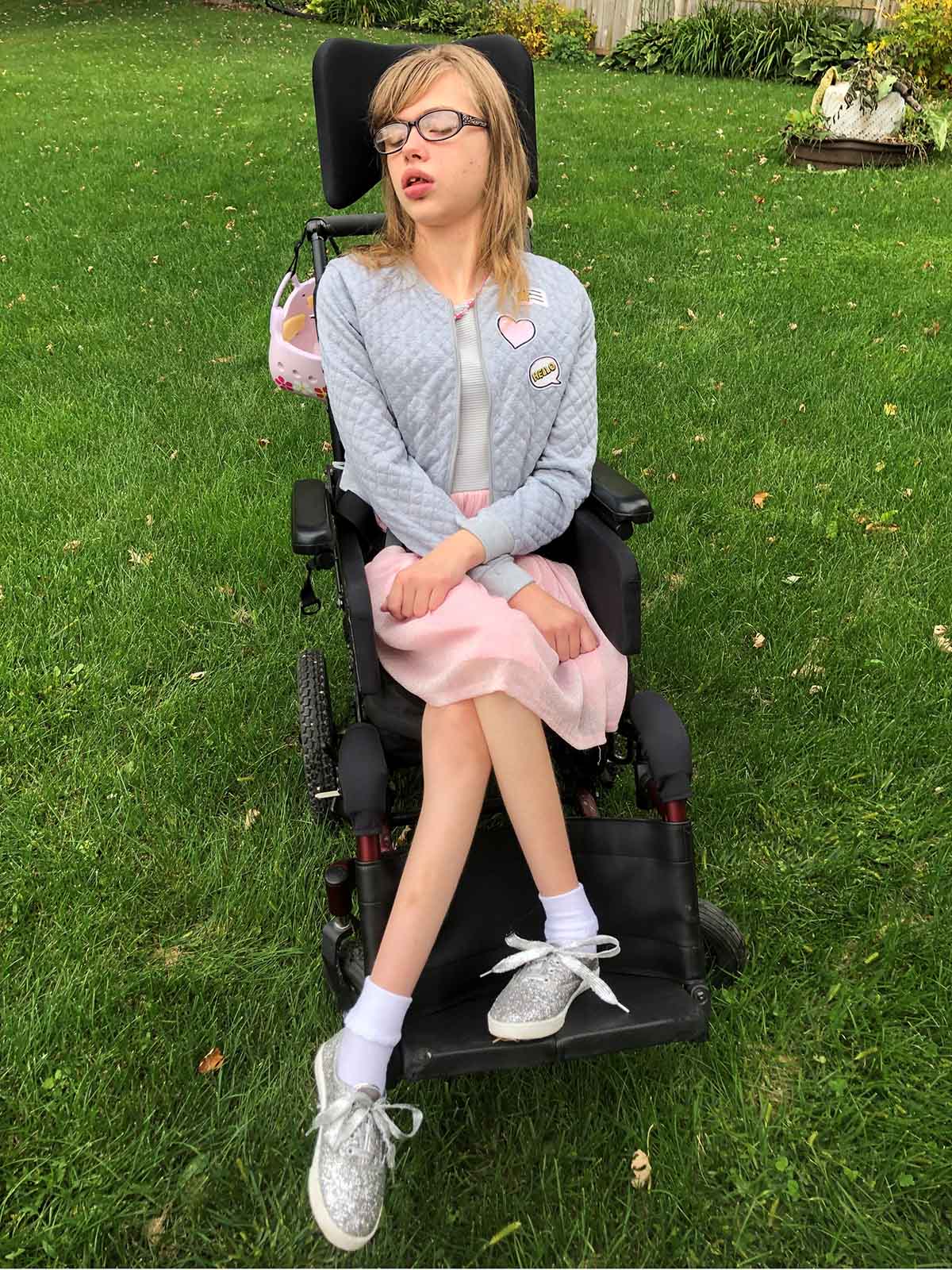Emily’s Clinical Trial: An Opportunity that Made a Difference

By Brian and Stacey
#MyClinicalTrial: Brian and Stacy’s Daughter Emily
Brian and Stacy’s daughter Emily started having seizures at 4.5 months old. Since then, it has been a long journey with many doctors' visits, multiple treatments, and a clinical trial when Emily was 7. Stacy talked with the Epilepsy Foundation, about her family’s experience with a clinical trial.
What is your family’s journey with epilepsy?
We have a single child, our daughter Emily. She started having seizures when she was 4.5 months old. I was a first-time mother, so her seizures scared the living daylights out of me. It has been a long journey ever since.
Does Emily still live with seizures?
Emily is not seizure free. She does continue to have seizures every day.
She was initially diagnosed with infantile spasms. She has since been diagnosed with Lennox-Gastaut syndrome. Emily has lived with four seizure types: atonic, myoclonic, tonic, and occasionally tonic-clonics. She has myoclonic and tonic seizures daily.

What brought you to a clinical trial?
We have tried every medication that we could possibly try. We have even waited for new ones to come on the market, at least 3 different times. At the time we enrolled Emily into a clinical trial, Minnesota was trying to get cannabidiol (CBD) legalized.
She was not a surgery candidate. Medications were stabilizing her but were not controlling seizures. Because of Emily’s severe case, the doctor suggested she try the CBD trial. We had talked to a doctor previously about CBD and were interested in trying it when it was available. When we found out about the clinical trial opportunity, we said yes right away. If we can do something to help her quality of life with a little bit of seizure control, we will take it. We were willing to try anything.
What was the experience of the clinical trial like?
Emily was in the trial for about four years. She started in August 2015 and completed it in July 2019. The initial trial was only for a year. After that, they wouldn’t take her off the medication until Minnesota legalized CBD, it was approved by the FDA, and covered by insurance companies.
There wasn’t anything negative about the experience. It involved a few more doctor’s visits and tests. They were not invasive tests, just blood draws. She also had to have EKGs (electrocardiogram), urine tests, and so on. The blood draws were the only things that is uncomfortable for anybody, but she took it very well. We totally understood the necessity for it. They are a nuisance at most.
Our same doctor was the head of pediatric neurology in Rochester, MN, at the Mayo Clinic and we live 20 miles away from there, so it’s in our backyard. She has been her doctor since she was 2. She helped facilitate us getting in the study.
Did the clinical trial make a difference in her seizure control?
Going into the trial, she was having tonic-clonic seizures 2-3 times a month, sometimes even weekly. Those dropped down to one tonic-clonic seizure every 6-8 months. For her atonic seizures, she was having one of those every day. Those seizures completely stopped and are controlled.
It didn’t do much for the tonic or myoclonic seizures. But we were certainly happy with the results we did get.
It totally improved her quality of life. She was more attentive and more aware of her surroundings. She started coming out of her shell and we saw more of her personality. She was sleeping more regularly. Her appetite was a lot better. It was definitely a good thing to do. Quality of life was tremendously improved.
What do you wish other people with epilepsy and their families knew about clinical trials?
Don’t be afraid of them. There is a reason why these medications and treatments are being studied, because there is a possible benefit.
Do your homework. Learn about the medication and make your decision about whether you are willing to risk it. If you can, talk to other people in the study.
It also helps the next family behind you get the same medication, because it’s now proven to work because you participated.
Share Your Story
We want to hear your clinical trial story. Tag us on Facebook, Twitter, or Instagram and use the hashtag #MyClinicalTrial to share yours.
